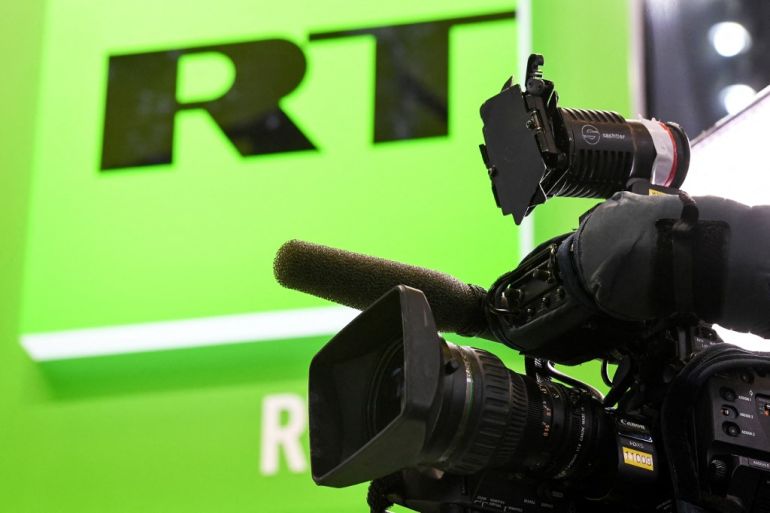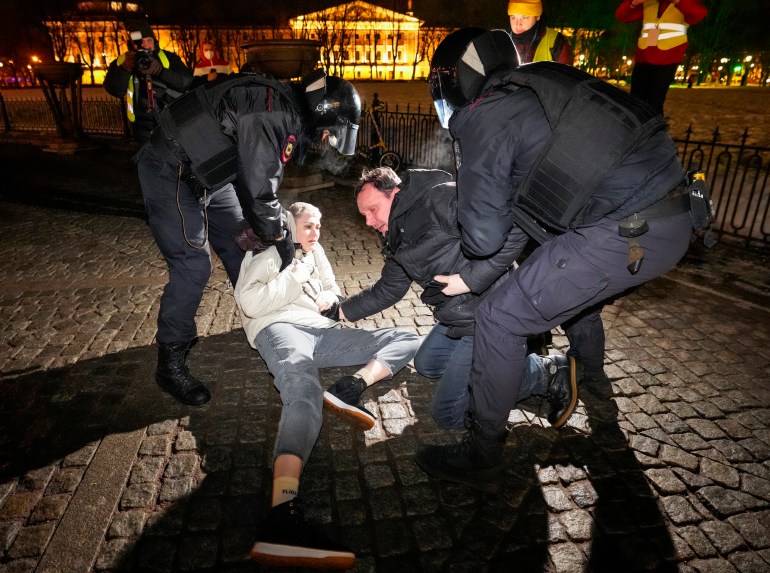Facebook to restrict access to Russian state media outlets in EU
Meta’s head of global affairs says company will limit access to RT and Sputnik in EU amid Russian attack on Ukraine.

Facebook’s parent company Meta has announced plans to restrict access to Russian state media outlets RT and Sputnik across the European Union, as Russia pressed on with its invasion of Ukraine.
Meta’s head of global affairs, Nick Clegg, tweeted on Monday afternoon that the social media company had received requests “from a number of Governments and the EU to take further steps in relation to Russian state-controlled media”.
Keep reading
list of 3 itemsUS Supreme Court weighs EPA’s authority to limit carbon emissions
Time for Bosnia to ‘get rid of Russian influence’: Analysts
Clegg said Meta would continue to work closely with governments on the issue.
“Given the exceptional nature of the current situation, we will be restricting access to RT and Sputnik across the EU at this time,” Clegg said on Twitter, without going into further detail about what the restrictions would entail.
We have received requests from a number of Governments and the EU to take further steps in relation to Russian state controlled media. Given the exceptional nature of the current situation, we will be restricting access to RT and Sputnik across the EU at this time.
— Nick Clegg (@nickclegg) February 28, 2022
The announcement comes on the fifth day of Russia’s military assault on Ukraine, which has killed at least 352 people so far, according to the Ukrainian health ministry, and garnered widespread condemnation.
Russian state-run media activity on social media platforms has emerged as a contentious issue for big tech companies during the invasion of Ukraine.
Meta, Google and YouTube have taken measures in recent days to restrict Russian state media outlets from making money from ads on their sites. Twitter banned RT and Sputnik from advertising on its site in 2017.
On Friday, Facebook said it had restricted Russian state media’s ability to earn money on the social media platform. The move came after Russia had announced it was partially limiting access to Facebook as the company said it refused to comply with an order from the Russian authorities to stop fact-checkers and content warning labels on its platforms.
The EU said on Sunday it would ban RT and Sputnik, while Canadian telecoms operators have also stopped offering the RT channel.

On Monday, the websites of several Russian media outlets were hacked, with a message condemning Moscow’s invasion of Ukraine appearing on their main pages.
While it is unclear who was responsible for the hack, the interference hints at a growing anti-war sentiment among Russians and others around the world. Russian President Vladimir Putin’s government also has been accused of seeking to suppress dissent.
Russia’s state communications and media watchdog Roskomnadzor blocked several Russian and Ukrainian media outlets over their coverage of the invasion of Ukraine.
The Russian magazine The New Times, which has been openly critical of the Kremlin, was blocked for reporting details about Russian military casualties in Ukraine, which the Russian defence ministry has not disclosed.
Protests against the invasion have been held across Russia for several days, despite authorities launching a mass arrest campaign against the demonstrators, while nearly one million people signed an online petition demanding an end to the war.